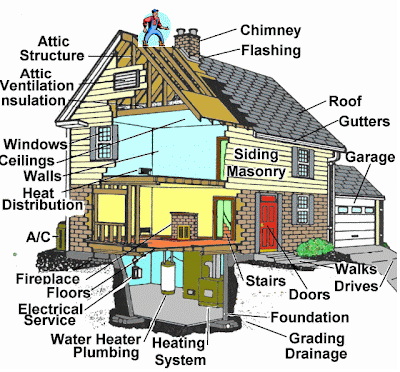For those that love studying statistical analysis information to make informed decisions, you will find these graphs interesting for sure. The million dollar questions for everyone “Has Decline in Home Values Bottomed Out” Who knows for sure, but this much is true “Home Affordability is the Best its Every Been” Mortgage rates play a big factor in the home affordability index. And history shows finding the true bottom of anything is very difficult. It’s always easy to look at the historical data and see the bottom. Back in 2008 the Dow was just over 6,000 and everyone was negative about buying into the markets and now the Dow is close to hitting 13,000
In this graph we can see that the Home Buyer Tax Credit prevented the housing market correction from taking place by 16 months. I suspect that we’re basically at “the bottom” for home prices, give or take five percent—barring a complete economic collapse, of course (which I realize some of my readers still strongly believe is on the horizon).
Prices in the Seattle area may dip a bit more, but I’ve yet to see any compelling evidence that they’ll lose another twenty or even ten percent. Affordability is already through the roof, and interest rates are likely to be held artificially low for quite some time to come. Buyers are coming back, and supply is taking a beating. Put it all together and you’ve got a picture of a market that’s bottoming out.
The Inventory-Based forecast fell apart pretty thoroughly just after it was forecasted. According to this model, we “should” be at +5.6% compared to a year ago, but in reality we’re at -6.3%
Whoops. Fail here too. Prices more or less followed the trend line down, but blasted right through 30% off peak and recently passed 40% off peak.
The Affordability forecast is interesting, in that home prices haven’t fallen as far or as fast as the forecast, but affordability is way higher than the forecast, thanks to the sustained plunge in interest rates. When this model was made, rates were around five percent, and the forecast was based on them staying there, not dropping to less than four percent.
Rents hit an all-time high in October, and appear to be headed up again after stagnating between 2009 and 2011. If rents rise another 4% and home prices fell another 4% an entirely plausible scenario over the next year the two lines will line back up again for the first time in fifteen years. And that does not even take inflation into the picture when it comes to future rent increases vs. having your mortgage payment fixed for 30 yrs. Excluding taxes & insurance.
In this graph we can see that the Home Buyer Tax Credit prevented the housing market correction from taking place by 16 months. I suspect that we’re basically at “the bottom” for home prices, give or take five percent—barring a complete economic collapse, of course (which I realize some of my readers still strongly believe is on the horizon).
Prices in the Seattle area may dip a bit more, but I’ve yet to see any compelling evidence that they’ll lose another twenty or even ten percent. Affordability is already through the roof, and interest rates are likely to be held artificially low for quite some time to come. Buyers are coming back, and supply is taking a beating. Put it all together and you’ve got a picture of a market that’s bottoming out.
This projection was not even close when the prediction was made.
The Inventory-Based forecast fell apart pretty thoroughly just after it was forecasted. According to this model, we “should” be at +5.6% compared to a year ago, but in reality we’re at -6.3%
Whoops. Fail here too. Prices more or less followed the trend line down, but blasted right through 30% off peak and recently passed 40% off peak.
The Affordability forecast is interesting, in that home prices haven’t fallen as far or as fast as the forecast, but affordability is way higher than the forecast, thanks to the sustained plunge in interest rates. When this model was made, rates were around five percent, and the forecast was based on them staying there, not dropping to less than four percent.
Rents hit an all-time high in October, and appear to be headed up again after stagnating between 2009 and 2011. If rents rise another 4% and home prices fell another 4% an entirely plausible scenario over the next year the two lines will line back up again for the first time in fifteen years. And that does not even take inflation into the picture when it comes to future rent increases vs. having your mortgage payment fixed for 30 yrs. Excluding taxes & insurance.
Contributing information for this blog posting








